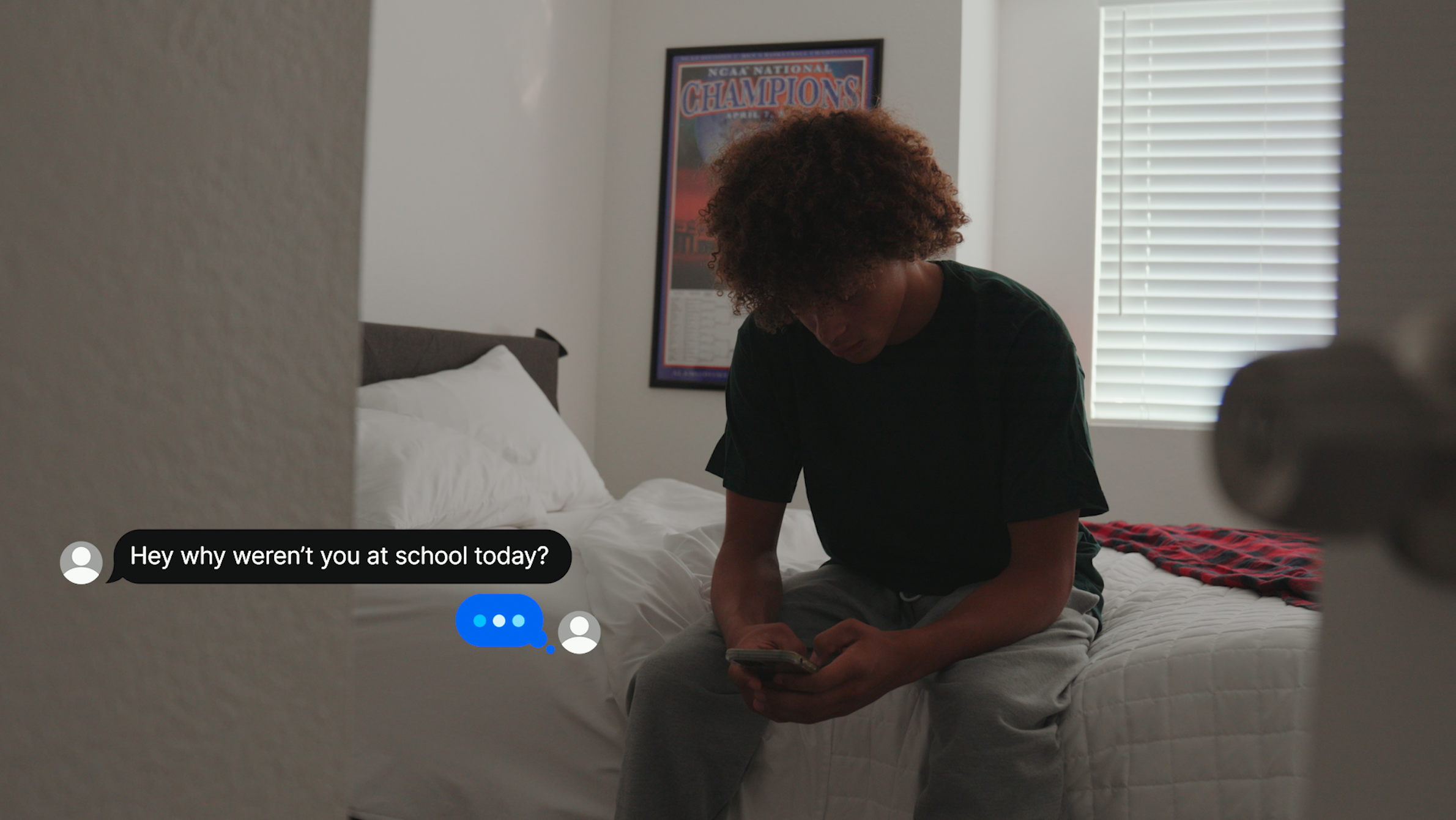Haddonfield Memorial High School Case Study on Mentorship
How Mentorship Is Improving the Mental Health of AAPI Students at New Jersey’s Haddonfield Memorial High School. In 2019, Haddonfield High hired four...
5 min read
Care Solace Aug 15, 2023 9:06:25 AM
.png)
As high school teachers, administrators, coaches, school health professionals, and other support staff, we see students struggling in the shadows of poor mental health every day. Our schools are rightly investing significant time, energy, and resources to address the youth mental health crisis. But as a school community, we must also concentrate on preventative measures.
Mentorship holds the potential to strengthen mental health and overall well-being of young mentees. Given that the choices teens make during this crucial time significantly impact their future, good mentorship can truly change the trajectory of their lives for the better.
If you are feeling the call to mentorship (and indeed, it is a calling), you should first understand why teenagers need mentors, identify whether you are well suited to take on this role, and know the qualities that make a good mentor-mentee match. Only then can you be a light that helps break up the shadows in a young person’s life.
Attention, Recognition, and the Need for Mentorship
Those of us who work closely with teens routinely see evidence of the mental health crisis, like anxiety, depression, and suicidal ideation. That is why Care Solace provides a vital service for high schools; without their help connecting kids to the additional care they need, school health professionals can quickly be overwhelmed. Poor mental health is linked to slipping grades, absenteeism, and a host of other behavioral and health risks, which affect entire families and our larger school communities.
The Surgeon General’s recent advisory on youth mental health outlines contributing factors to the state of kids’ mental health, including:
Another factor in this complex web — a universal, human factor — is the need for recognition, which is the opportunity to be seen, known, and appreciated for exactly who we are. Whether a person is 15 or 75, learning to drive or learning to accept using a cane, we all need to be recognized. Recognition is not the same as attention, yet these terms are often used interchangeably.
Attention, at least in this context, is more superficial. It’s akin to getting a thumbs-up, a like on social media, a vote of approval, or a simple compliment. Social media influencers excel at garnering attention, and some kids dream of attaining such levels of social capital. Even kids who may not explicitly seek online fame may still feel the pressure to delete a personal social media post if it doesn’t get “enough” likes.
It makes sense. Just like the rest of us, kids enjoy positive attention. Whether it’s winning a game, getting nominated for an award, or getting lots of likes on a post, it can feel good — for a moment. Ultimately, though, seeking attention is a way of trying to meet a deeper, universal human need for recognition.
New York Times columnist David Brooks said, “There is one skill at the center of any healthy family, company, classroom, community, university, or nation: the ability to see someone else deeply, to know another person profoundly, and to make them feel heard and understood.”
Brooks is describing the ability to provide recognition — and that skill lies at the heart of meaningful mentorship.
The Gift of Mentorship: Connection and Direction
Teachers, coaches, and mentors are separate roles, and each has a unique part to play in the life of a young person. Sometimes, one person occupies all 3 roles; for example, a high school history teacher might coach the JV football team and also act as a mentor to the student who plays quarterback.
Generally, students and players can’t choose their teachers and coaches. But mentees must choose their mentors, and mentors, in turn, must choose to invest their time and energy in mentees. The relationship tends to be more informal, fluid, and adaptable, transcending time limits and predetermined goals.
As confidants, advisors, and role models, mentors offer two major gifts to their mentees: authentic connection and personalized direction.
When mentors provide connection and direction to a mentee, they naturally move beyond surface interactions. A mentor can see when mentees need extra mental health support outside of their relationship and school-based services. That’s a privilege — and a responsibility.
Because mentorship is a vocation — a special calling — it isn’t for everyone. Adults who are eager to embrace the role of a mentor should do an honest self-inventory and ensure the following 5 traits are there — in spades.
1. Discernment. Choosing to mentor means carefully choosing a mentee that is ready and willing to do their part. Mentors also need the ability to zero in on mentees’ potential and provide just-right feedback.
2. Generosity — especially with time. Time is a valuable resource, and mentors must be willing to save it for and share it with their mentees.
3. Communication. Effective communication is the foundation of mentorship. A mentor has well-honed skills in active listening, empathy, and constructive feedback.
4. Experience. Whether it's sharing professional skills, life lessons, or personal growth strategies, the mentor's knowledge and experiences can provide the mentee with a broader perspective and valuable insights.
5. Commitment. Mentorship is a journey that requires commitment. A dedicated mentor is in it for the long haul, building a foundation of trust and consistency with their mentee.
In summary: mentors must choose their mentees wisely. Mentorship is a sizable investment of time, energy, emotion, and experience.
When we think of mentorship, we may conjure up an image of shooting hoops with a kid after school through a more traditional, structured program. And while that’s a possibility, some of the most potent mentorship connections are serendipitous. They happen spontaneously and organically, and they prove to be enlivening for both mentor and mentee.
Organic mentorship springs up through shared interests or passions. Those of us who are school health professionals witness instances where a student finds an informal mentor in a teacher, a peer, or even a community member who shares a similar background or has experienced similar challenges.
The best mentorship matches are enlivening, so both parties feel energized. Mentorship should never be a one-way street! Mentors can ignite a spark in their mentee — while simultaneously fanning the flames of their own passion for their field or interest. Enthusiasm is infectious! In the best matches, a mentee gains confidence and loses fear about stepping outside their comfort zone. And mentors have an opportunity to reflect, deepen their own understanding, and gain insight from the mentee.
Mentorship: Another Word for Skilled Love
In the face of the youth mental health crisis, mentorship emerges as a way to positively transform the lives of teens. If you are part of a high school community and feel the calling to become a mentor, take the time to understand the real needs of teenagers, assess whether you are suited for the role, and recognize the qualities that foster a strong mentor-mentee match. As educators and community members, embracing mentorship as a preventative force is crucial.
Essentially, mentorship is a form of skilled love — a love that springs from a willingness to invest and sacrifice in a human being you truly recognize. This ability to see someone deeply isn’t an intellectual skill. It’s a deep knowing, a focused attention, and a motivation to be in harmony with someone else.
We must stay motivated to use resources like Care Solace to meet the numerous, day-to-day requests for mental health interventions. But let’s use the preventative tools at our disposal. Say “yes” to mentorship, so teens can find their way forward — on an illuminated path.

Alice Lee is a school psychologist and the advisor of the Asian American Cultural Club at Haddonfield Memorial High School in Haddonfield, NJ. She became a school psychologist to have a tangible impact on the next generation and to see them reach their potential by advocating for the support they need. Alice loves books, plants, Pilates, traveling, and Taylor Swift.
.png)
How Mentorship Is Improving the Mental Health of AAPI Students at New Jersey’s Haddonfield Memorial High School. In 2019, Haddonfield High hired four...

The demand for culturally relevant and equitable care has never been more pressing. Dr. Aaron Henderson, a therapist, professor, and social justice...

Schools are often the first line of defense in supporting student mental health and preventing youth suicide. Recognizing this responsibility,...